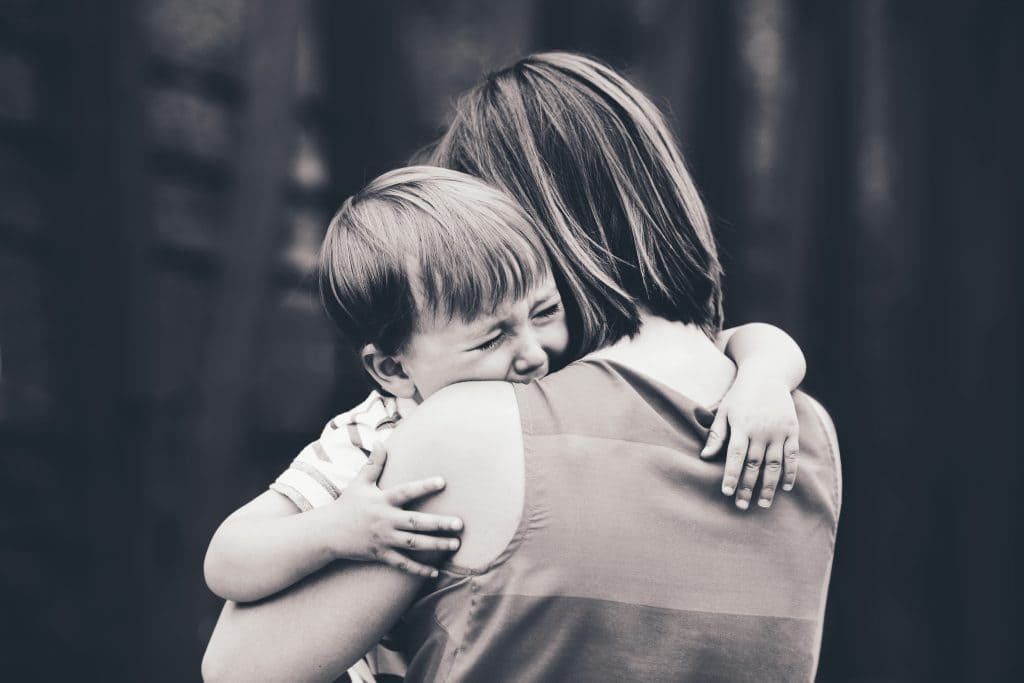When positive parenting seems to fail, these are practical strategies to get results and encourage your children to…
When positive parenting seems to fail, these are practical strategies to get results and encourage your children to listen better.
“I love the idea of positive parenting but it doesn’t work for every kid.”
“Yes! Positive parenting doesn’t work for us either. We’ve tried our best and we aren’t getting anywhere.”
I had just published a post that I felt pretty confident about. I had read even more research than I normally do. And, I had chosen my words carefully. When I hit publish, the page views started pouring in. A big page shared it. A quick search and I was able to find where all the traffic was coming from. That’s when I saw those two comments.
Whenever a big Facebook page shares my content, I brace myself for a furry of rebuttal. Sometimes it doesn’t come, but there are times people seem to unleash pent-up emotion on content that doesn’t agree with them. These two comments, however, had my complete empathy and understanding.
I was one of those little girls who dreamt about becoming a mom. For as long as I can remember, I have gathered information and ideas on how I would one day be the best parent possible. As a young teen, I babysat as often as I could, volunteered in kindergarten classes, and tutored kids. In university, I took developmental psychology and would unwind from school by watching way too much Nanny 911 and those sorts of shows.
When the time came, I knew I would be firm but loving. I would try and avoid spanking and use the recommended suggestion of 1 minute per year of age when giving my kids timeouts. I would do my best and get it right.
When my oldest approached toddlerhood, I decided to dig deeper into developmental psychological research. I started to learn more and more about why punishment is ineffective at teaching our kids to internalize our values. All of the research was there to back up this claim, but I felt lost.
Many times in the early days of parenting my daughter where I was mystified.
She would hit her baby brother.
I would tell to keep her hands to herself.
She would do did it again and look at me.
Or, I would warn both kids we were about to leave the park.
I would set the timer for the time we had agreed upon.
The timer would ring.
I would show them the ringing timer, count to three and find myself in a standoff.
What was supposed to happen at the end of three?
I understood that authoritarian parenting may temporarily increase compliance. Moreover, parents who want their children to embody their value should avoid using punishment to get their kids to behave. So that meant yelling, spanking, chastising, lecturing and timeouts were out. But I didn’t ‘get’ what I should be doing instead.

When it comes to understanding positive parenting, an important distinction must be made. As mentioned before, authoritarian parenting is not ideal because it relies on external control. Specifically, it relies on punishment to enforce expectations. Permissive parenting neglects discipline while forgoing punishment. But, authoritative or positive parenting is the sweet spot in between.
This means that I must remember to:
For example, “When we are at the kids’ museum and you want to change stations, I need you to ask me and make sure I say okay.”
For example, “In five minutes, it’s time to turn off the iPad. I need you to set the timer for five minutes, please.”
For example, I need to ask myself have they eaten and slept well? Have I spent quality time with them or have I been preoccupied? Are they overstimulated? Do they need a break or a change of scenery? I can’t expect them to self-regulate and listen if their basic needs have not been met.
For our family we are firm when it comes to wearing seat belts, not hurting one another, and following through on what they’ve agreed to do. Matching clothes, whether they carry or wear their jackets, whether we leave the park immediately or in five minutes, testing out new ideas, crafts, or skills are all negotiable.
In order to positively parent, parents and caretakers must be consistent.
For example, if the kids have agreed to clean up or leave the park when the timer goes off and then don’t listen, I need to hold them accountable. When they lose their cool and lash out at one another despite me reminding them to use their words, I need to ensure both kids are safe and that the aggressor understands to stop.
This makes your directions easier to understand.
Negative: “Stop jumping.”
Positive: “Sit on your bum.”
The first example the child has to process what you have told him and figure out what he should instead.
Here are some other examples:
Negative: “Don’t run.”
Positive: “Walk, please.”
Negative: “Don’t hit.”
Positive: “”Hands to self.”
In the positive examples, the child doesn’t have to deduce what you want her to be doing instead. (Read more about this here.)

When I empathize with my kids, I make them feel validated. It also helps them understand how to express themselves in the future.
It is surprising how many power struggles are diffused by listening to my children. I ask, “What’s up?” Then, I let them take turns to get every little thing off their chests. I wait until they’re done speaking. Then, I reiterate what I expect them to do. Almost every single time, after they have said their piece, they are calm and ready to cooperate.
For example, do they want to clean up now or in five minutes? Do they want you to put on their seatbelts or do they want to do it themselves? (Read more about why this works here.)
Sometimes, I just need to patient and wait for compliance. For example, when my son refused to take his bike home from the park, I told him I would wait as long as it took to go the one block home. It took a while, but soon he realized nothing was going to happen until he’d finished.
All too often I forget how overwhelming life can be for someone so young. When my children can’t seem to listen, I try to work with them to help them.
Some call this ‘time in.’ Basically, all it is is a timeout where I stay with my child until he or she is calm and ready to make good choices.
When I feel like I’m going to lose my cool, I express how I feel and explain how I am going to calm myself down. Since I’ve started this, I’ve noticed my daughter will say things like, “I feel so mad I want to hit you.” But she doesn’t hit like she used to.
Positive Parenting can feel like it doesn’t work because it takes practice, consistency, and effort. The good news is that in time, it becomes easier and becomes a little more like second nature. Then children start to embody our example. Instead of responding out of fear of punishment, they cooperate because they feel it’s right. That makes it worth all the effort.
Your Kids Will Listen if You Do This
7 Step Parenting Success System
Stop Yelling at Your Kids with One Simple Trick
Time-In vs. Timeout: How to figure out what’s right for your family
The Best and Worst Consequences for Moral Development
Being a teenager is like standing on a bridge between childhood and adulthood. It’s exhilarating, confusing, lonely, and…
You know, growing up isn’t a cakewalk. We all face those bumps and hitches that shape us into…
Ever caught yourself nudging a rogue pea back into its lane, even though you’re decades past the kids’…